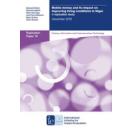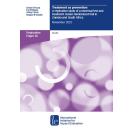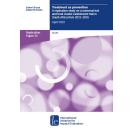
Mobile money and its impact on improving living conditions in Niger: a replication study
3ie Replication paper 19
Edmundo Beteta and colleagues replicate the results of a randomized evaluation carried out by Aker and colleagues in 2016 in Niger. The original study used randomization to evaluate the impact of mobile money as a delivery mechanism in a cash transfer program. The original study focused on the costs and benefits of mobile money versus traditional cash transfers among female recipients. The recipients bought more types of food items and increased their diet diversity compared to households using traditional transfer mechanisms, such as cash. These results could be attributed to time-savings associated with mobile transfers or to the increase in women’s intra-household bargaining power.
The replication study confirmed the original results, with no significant differences found in the pure replication. Through new measurement and analysis, the results remained largely robust to multiple analyses. Likewise, the additional robustness tests suggested a differentiated buying behavior between older beneficiaries and the younger ones, especially in the mobile money transfer system group. Finally, as part of the theory of change analysis, the replication authors described stunting and wasting status, as well as their severity in children aged under five years. The nutritional evaluation showed a significant difference between mobile money transfer and manual cash transfer households on the reduction of severe wasting in children between the ages of 25 and 60 months.

